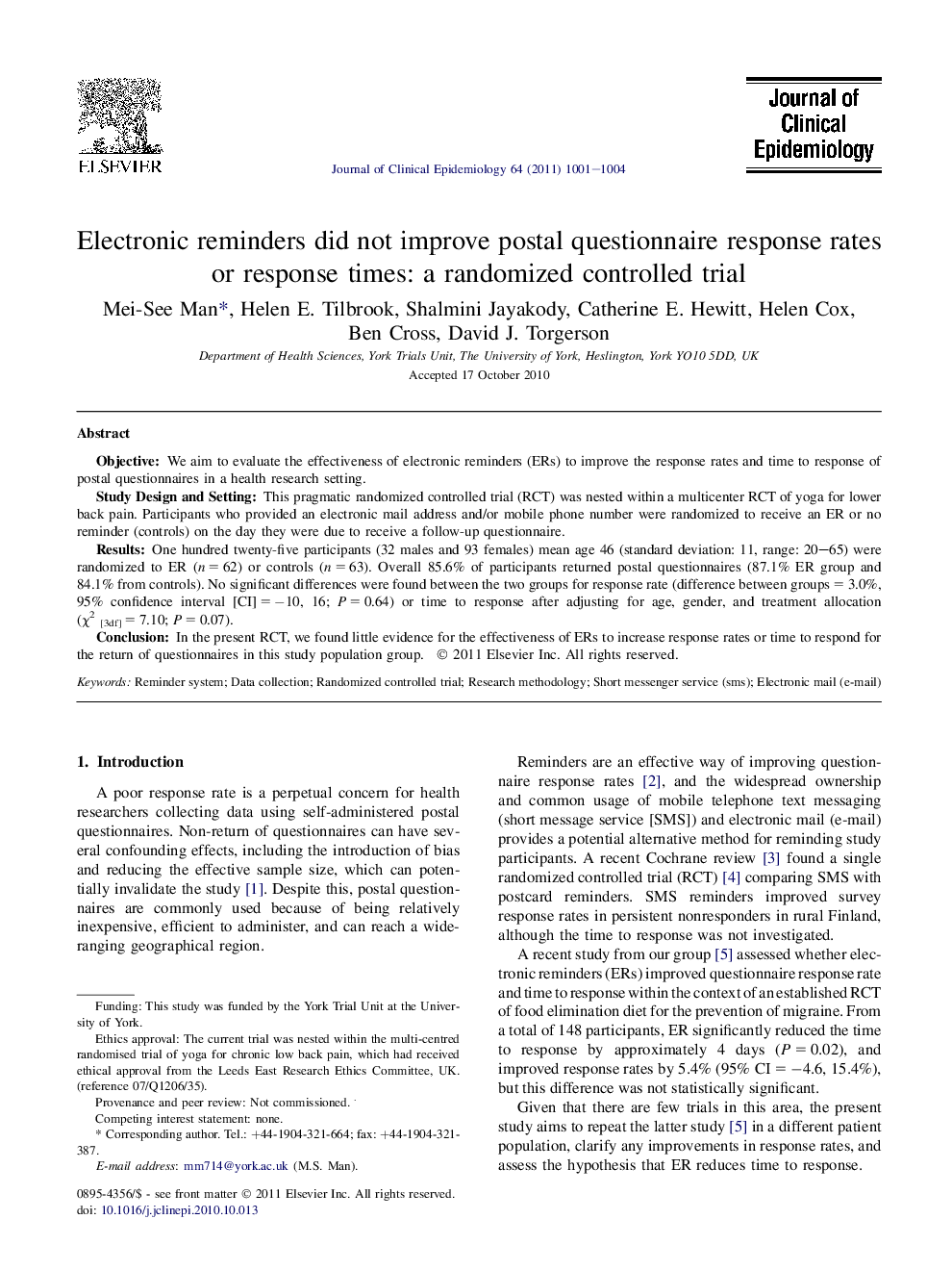| Article ID | Journal | Published Year | Pages | File Type |
|---|---|---|---|---|
| 1082874 | Journal of Clinical Epidemiology | 2011 | 4 Pages |
ObjectiveWe aim to evaluate the effectiveness of electronic reminders (ERs) to improve the response rates and time to response of postal questionnaires in a health research setting.Study Design and SettingThis pragmatic randomized controlled trial (RCT) was nested within a multicenter RCT of yoga for lower back pain. Participants who provided an electronic mail address and/or mobile phone number were randomized to receive an ER or no reminder (controls) on the day they were due to receive a follow-up questionnaire.ResultsOne hundred twenty-five participants (32 males and 93 females) mean age 46 (standard deviation: 11, range: 20–65) were randomized to ER (n = 62) or controls (n = 63). Overall 85.6% of participants returned postal questionnaires (87.1% ER group and 84.1% from controls). No significant differences were found between the two groups for response rate (difference between groups = 3.0%, 95% confidence interval [CI] = −10, 16; P = 0.64) or time to response after adjusting for age, gender, and treatment allocation (χ2 [3df] = 7.10; P = 0.07).ConclusionIn the present RCT, we found little evidence for the effectiveness of ERs to increase response rates or time to respond for the return of questionnaires in this study population group.
